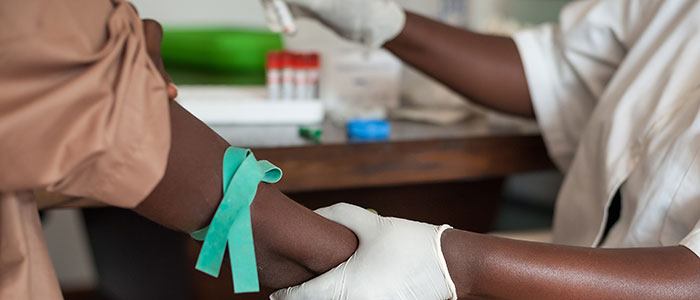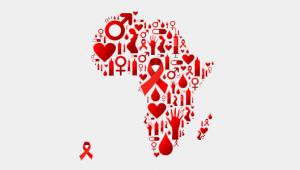The news came ahead of the week-long AIDS conference, which kicked off today in Durban, South Africa. Campaigners, scientists and experts convene at the annual event to discuss progress in ending the epidemic.
This year, for the first time since they jolted the world into action in 2000, attendees will issue warnings that the virus is starting to win back ground.
The number of people that become infected with the virus every year, which had been falling, has now stalled in many countries. In others, a report by the United Nations’ agency UNAIDS said there had been worrying increases in new infections.
Since 2010, the annual number of new infections among those aged 15 and above has remained static, at an estimated 1.9 million (in 2015, new infections ranged from between 1.7-2.2 million).
Russia, Pakistan, Turkey, Poland, Egypt and Kenya are among those that have seen the largest increases since 2005, with a rise in new infections greater than 49%.
In a report released over the weekend, UNAIDS and the US-based Kaiser Family Foundation warned that funding to support HIV efforts in low- and middle-income countries had fallen for the first time in five years in 2015.
The drop was significant, amounting to almost $1bn. In 2014, support stood at $8.6bn, compared to $7.5bn last year.
The report pointed out that the appreciation of the US dollar, which resulted in the depreciation of most other donor currencies, had had an impact. However, it said this was not enough to account for the decline in full, and the majority of governments assessed had reduced their support.
This includes the US, the UK, France and Germany, but the report noted that the fall in support from the US – which provides the lion’s share of funds – was mostly due to timing as it shifts cash into 2016 to implement new and expand existing programmes.
Regarding other donors, Kaiser Family Foundation vice president and director of global health and HIV policy, Jen Kates, pointed out they had faced “many competing funding demands”, including emergencies like the war in Syria and the refugee crisis, “against a backdrop of fiscal austerity in a number of countries”.
“Looking ahead, donor funding for HIV remains uncertain as leading donors face changes in political leadership and the world is still digesting the effects of Brexit,” she warned.
The commitment to meet the sustainable development goals, which include targets on HIV/AIDS and ambitious targets on many other issues, puts further pressure on limited funds. It is estimated as much as $4.5tn could be needed annually to meet the SDGs by 2030.
Changes to the definition of official overseas aid will further divert scarce cash away from the core purpose of aid, campaigners have warned.
This weekend’s report warned that already, the SDG target to reduce new HIV infections to fewer than 500,000 by 2020 are off track.
“Countries still need urgent support over the next few years to fast-track their response to HIV, enabling them to end the AIDS epidemic by 2030 and save millions of lives,” said Luiz Loures, UNAIDS deputy executive director.
“Diverting resources from the HIV response now will mean much greater human and financial costs over the long-term.”
The World Health Organisation has also voiced concern ahead of this week’s conference, warning on treatment and drug resistance, as well as prevention and funding.
Greater access to simple and affordable testing and drugs is needed, it said. It also noted some “worrisome indications” that drug resistance is emerging as a significant threat and said it would be closely monitoring these trends.
“The enormous progress on HIV, particularly on treatment, is one of the big public health success stories of the century,” said Margaret Chan, director-general of the WHO. “But this is no time for complacency. If the world is to achieve its goal of ending AIDS by 2030, it must rapidly expand and intensify its efforts.”














